I think what catches most people off guard about these rural areas is the viciousness of the poverty and how it’s staring right at you…I think for a lot of readers that seems a little exotic.
--Daniel Woodrell
With most Americans, rural life has become exactly how Woodrell describes it: Exotic.
For most of us, an environment where we’re not stacked on top of each other, and instead living in a world where the closest neighbor is a mile or two away, and the view from the front window is of trees or cornfields or miles of untouched, barren desert seems very much like another world. A world that invokes a certain amount of dread in most city dwellers. Maybe it’s all that quiet and serenity? Or maybe it’s the idea of being alone and out in the middle of all that quiet and serenity with no cell phone reception, essentially cut off from the convenient cookie cutter world of the suburbs, and you somehow manage to stumble upon a rusted out single wide trailer with a strong chemical stink wafting from it, or into a pot field, and the people tending to that backwoods lab and field aren’t exactly happy to see you.
Much like mid-century noirists such as David Goodis and Charles Willeford, the writers of rural or “country” noir exploit the reader’s fear of the unknown, of commonplace “otherness” and the human being's natural xenophobic tendencies. But unlike the noirists of the past, the writers of rural noir seem to focus not simply on the transgressions of individuals, but on the greater issues facing rural America. The characters in these stories are the men and women who at one time would’ve been farmers, or mill and factory workers. Their lives at another point in history would’ve been good ones, but in the current economic climate where the family farm has become something of a myth, and most factory work has been shipped overseas, and the only jobs available are low paying and retail heavy, the idea of turning the remaining family acres into a highly profitable, albeit illegal, business in order to support their families seems entirely probable.
Simply put, these aren’t the conmen, grifters, hardmen, and backstabbing whores that are so commonplace in most crime fiction. The characters in rural noir fiction could easily be your cousin in Virginia, or you if you didn’t skip out of your middle of nowhere town after you graduated high school.
Now before I get started with things, let me state that this is not meant to be a definitive list. I know I’m wasting my breath when I say this, but I don’t want anyone jumping into the comments section whining and complaining about how I didn’t include Dirty White Boys or Elmore Leonard’s Raylan stories. All this list is meant for is to be used as a guide for the uninitiated. However, if you want to add other must read suggestions in the comments, knock yourself out. Just be nice. Oh, and no bitching and complaining about me not including Faulkner, O’Connor, Hanna, or McCarthy (okay, I cheat a little with McCarthy). Yes, I know these four writers were absolutely essential to the development of the gothic styles of most of these storytellers, but I don’t think any of us could truly call the aforementioned writers “noir” by any stretch of the imagination.
THE STORIES
Some of the best and most memorable pieces of rural noir have been, and continue to be, the heady number of short stories being produced within the genre. This was also the field I had the most difficulty narrowing down to a handful of choices:
'Poachers' by Tom Franklin
Considered by many to be the quintessential country noir novella (and in my humble opinion, one of the best short novels produced in the late 20th century) this story of a pack of wild backwoods Alabama brothers being hunted down by a near legendary game warden for the murder of a brother warden who was unfortunate enough to cross paths with the brothers is both brutal and elegantly written. Franklin’s prose is as hard charging as Raymond Chandler and Jim Thompson at their best and is breathless in its execution. Franklin’s later novels, Hell at the Breach and Smonk, took on a more McCarthyesque tone, but in his most recent novel, 2011’s Crooked Letter, Crooked Letter, he returned to the more straightforward style of Poachers.
'A Death in the Woods' by William Gay
My favorite William Gay story is about a man named Pettijohn whose seemingly ideal life is disrupted when the body of man who committed suicide is discovered near his property. Pettijohn quickly discovers that the dead man is his wife’s former lover, and his life crumbles. As with most William Gay short stories, the prose is tense, atmospheric, and carries true emotional weight. I can’t help but think that Gay was taken far too soon and that too many of his picturesque stories were lost to us. My greatest hope is that the Gay family will perhaps put together a posthumous collection or two of his early and unpublished writing for his rabid fanbase.
'The Solution to Brian’s Problem' by Bonnie Jo Campbell
The story of a weak willed husband desperate to break ties with his meth-addled wife is both dark and exceptionally funny, as the narrator, Brian, lists the many ways to get himself and their child away from her. The story is from Campbell’s National Book Award nominated, American Salvage, and was probably one of the more difficult selections I had to make for this list because Campbell’s near perfect collection contains so many truly great pieces of writing, and it seems unfair to select simply one. Also check out Campbell's epic novel Once Upon A River, which I personally think was more than worthy of being nominated for some major awards, and I'm not alone in that opinion, either.
'Peacekeeper' by Alan Heathcock
The story of a small town sheriff patrolling her town for looters during a flood and dreading that the waters may unbury a child killer she murdered the previous year. Heathcock’s debut, Volt, was at the top of the heap of stellar dark short story collections that appeared in 2011 (along with Frank Bill’s brutal, rough-hewn Crimes in Southern Indiana and Shann Ray ‘s Hemingwayesque, American Masculine). Heathcock’s fiction is delivered in a deadpan elegance, and you get the impression while reading through this book of loosely interconnected stories that Heathcock labored over each word that made it onto the final page.
'Controlled Burn' by Scott Wolven
I know more than a few writers (myself included) who tried to up their game as storytellers when they first read this stripped down masterpiece of a short story. The story is of a man living under the assumed name of Bill Allen who is on the run for the murder of a high school girl and works in a lumberyard along the Vermont/New Hampshire border. One Saturday, he’s hired out by his employer to burn the cornfield of a client who may or may not have marijuana planted among the rows. Like most of the stories on this list, the story is based around a horrendous crime, but at its core, it’s a story about identity, and how one can truly lose themselves in their attempts to escape from the past.
THE NOVELS
This wasn’t as tough on me to put together as the short story list, but it was still a bit of a pain in the ass to narrow it down to five books. But for anyone curious about the rural genre and are more inclined towards novel length works, these five are probably your best place to start.
![]() 'The Death of Sweet Mister' by Daniel Woodrell
'The Death of Sweet Mister' by Daniel Woodrell
In my opinion, there is no American writer working better than Woodrell. The content and themes of his stories transcends genre and often provides the most unflinching gaze at the lives of those who've choosen to live off the grid. The story of Shuggie Akins and his mother/paramour, Glenda, is Shakespearean in scope, yet Woodrell crafts his characters as people you may live next door to or those you may cross a busy street to get away from. The Death of Sweet Mister is Woodrell’s best novel, and one that I encourage everyone to read even if they decide not to pick up anything else on this list.
![]() 'Father and Son' by Larry Brown
'Father and Son' by Larry Brown
The one thing I think I can truly credit Brown with being is the (directly or indirectly) spiritual father of just about every writer on this list. Brown wrote with a furor and abandon that very few writers are able to achieve during their careers. Father and Son is not the best known of Brown’s novels, (that distinction goes to both Joe and Fay) but the brutal story of Glen Davis’ murderous rampage after being released from prison stands as a precursor to his best known novels, as well as the book which cemented him in the canon of American letters as one of our most potent and original storytellers.
![]() 'Child of God' by Cormac McCarthy
'Child of God' by Cormac McCarthy
I told you I was going to cheat a bit with McCarthy. I mean, how could I not? Out of the four writers I stated earlier as being influences on the current rural novelists, McCarthy is the only one still living and producing some of his most imaginative fiction. (Think what you will, but I still think that The Road is one of the best post-apocalyptic novels released in the last twenty years.) But for most diehard fans of McCarthy’s, it’s his Tennessee novels that they cling to as his crowning achievements as a novelist, (Outside of Blood Meridian, of course.) and I’ll be more than happy to admit that I’m more of a pre-Suttree booster than a post, and Child of God is the best example of that period in McCarthy’s creative output. The story of Lester Ballard is both grotesque and darkly hilarious. A dispossessed loner, Ballard wanders the hills of eastern Tennessee committing some of the vilest acts McCarthy has ever captured on paper. Ballard is a literary ten-car pile up; the audience knows that what they’re reading is stomach churning, but they can’t look away, they have to see what this thing will do next. Child of God is a brilliant exploration into the mind of a killer, and in my opinion, McCarthy’s most accessible novel.
![]() 'The Devil All The Time' by Donald Ray Pollock
'The Devil All The Time' by Donald Ray Pollock
Needless to say, the gang here at LitReactor are pretty big fans of Pollock, and with good reason. The Ohio novelist’s full-length debut is a brilliant take on the obsessive—however dark those obsessions may be—nature of human beings. This desperate multi-generational epic is a lean, muscular piece of writing, and much like Child of God, it, too, has the same traffic fatality effect; we can’t take our eyes off of Carl and Sandy Henderson as they lure yet another hitchhiker into their rundown beaters headed for a bloody, pornographic photo shoot, nor can we shy away knowing that poor, cursed Avrin Russell will eventually climb into one of those cars. The Devil All The Time is about as perfect as a debut novel comes, and I can’t wait for Pollock's next book.
![]() 'Pike' by Benjamin Whitmer
'Pike' by Benjamin Whitmer
I discovered the story of Douglas Pike almost by accident. My long time friend and editor Brian Lindenmuth tweeted out back in 2010 that he may have found his novel of the year. Now mind you, this was in July, so there was a lot of year left to cover. When I asked him what the book was, he sent me a PDF copy of Pike, and ordered me to read me to read it ASAP, and I did. The novel is a perfect combination of urban and rural setting, with a bulk of the story taking place in the racially charged city of Cincinnati, and along the backroads of the city. The story of Pike, his damaged business partner, Rory, and Pike’s granddaughter, Wendy, and their eventual showdown with the deranged cop (and most likely Wendy’s biological father.) Derrick Kreiger over the death of Wendy's mother. What Pike most easily captures is of a time and place where the world was set to explode, but yet somehow managed to survive despite the violence and hatred swarming around us.
Honestly, the group of stories I’ve presented here is just the tip of the iceberg when it comes to rural noir. With writers such as Frank Bill, Peter Farris, Frank Wheeler Jr., Jake Hinkson (although with Hinkson, I consider him to be one of the few and best writers of pure noir—along with Missouri novelist, Scott Phillips and LitReactor favorite, Nik Korpon—currently working.) Benjamin Percy, and Matthew McBride crafting new stories of the hard bitten men and women of our quickly evaporating countrysides, I expect that this exotic territory has a long future ahead of it, at least until our cities all start running together and the backwoods of America are nothing but a myth.
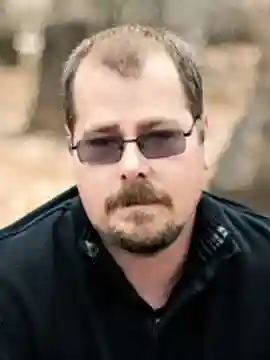
About the author
Keith Rawson is a little-known pulp writer whose short fiction, poetry, essays, reviews, and interviews have been widely published both online and in print. He is the author of the short story collection The Chaos We Know (SnubNose Press)and Co-Editor of the anthology Crime Factory: The First Shift. He lives in Southern Arizona with his wife and daughter.
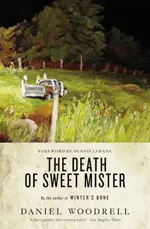 'The Death of Sweet Mister' by Daniel Woodrell
'The Death of Sweet Mister' by Daniel Woodrell
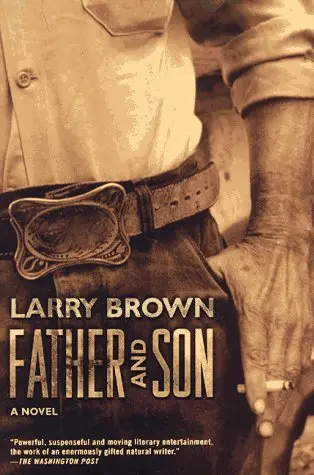 'Father and Son' by Larry Brown
'Father and Son' by Larry Brown
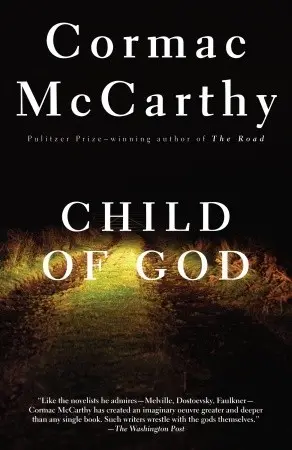 'Child of God' by Cormac McCarthy
'Child of God' by Cormac McCarthy
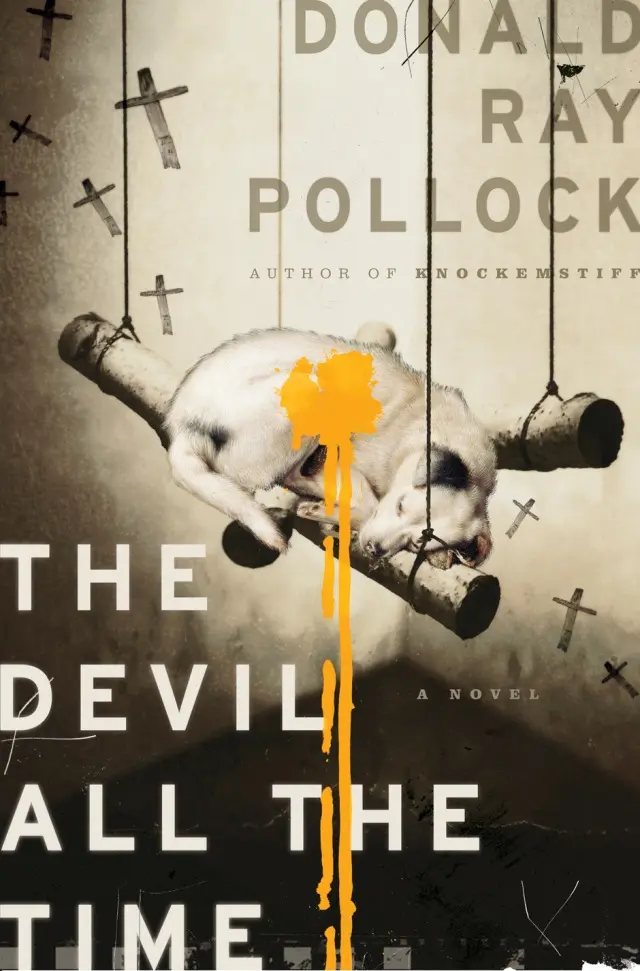 'The Devil All The Time' by Donald Ray Pollock
'The Devil All The Time' by Donald Ray Pollock
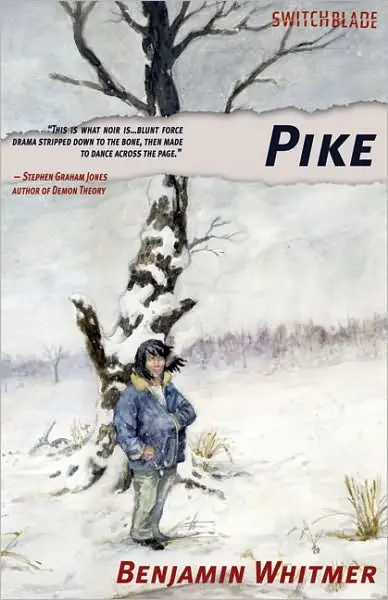 'Pike' by Benjamin Whitmer
'Pike' by Benjamin Whitmer








